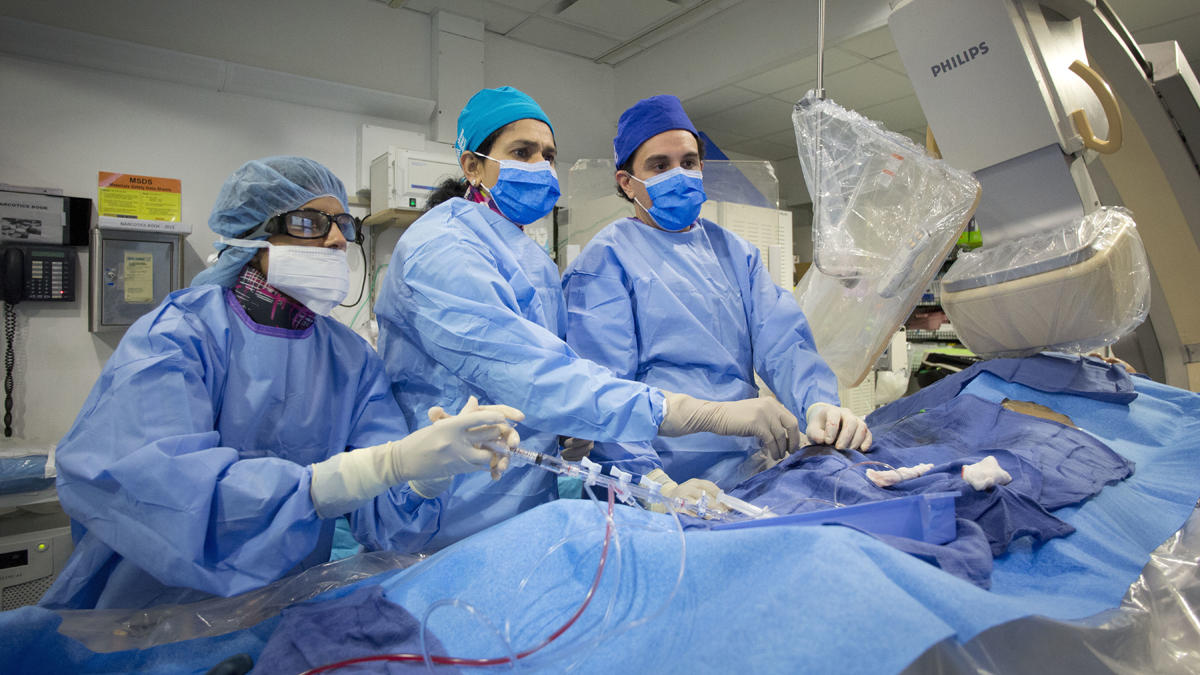A study carried out by U.K. researchers offers evidence that there’s no benefit in implanting heart stents in patients who are experiencing chest pains prompted by exertion.
While the device is a literal life-saver for patients with blocked arteries, stents are also regularly placed in individuals who are suffering from stable angina due to narrowed arteries. Researchers estimate the number of patients undergoing Percutaneous Coronary Intervention (PCI) under those conditions could reach as high as 500,000 annually.
The new research, published in The Lancet, examined the results of the ORBITA trial, which was a blinded, randomized, placebo-controlled study of 200 patients diagnosed with stable angina. Researchers say it was first time the results of the stenting procedure was compared against a group of patients who did not have a stent implanted.
“Surprisingly, even though the stents improved blood supply, they didn’t provide more relief of symptoms compared to drug treatments, at least in this patient group,” said Dr. Rasha Al-Lamee, an interventional cardiologist at Imperial College Healthcare NHS Trust and the lead author of the study.

Surgeons perform heart surgery to implant a stent in a patient at Mount Sinai Hospital in New York. (Image credit: AP Photo/Mark Lennihan)
Half the patients received the stent and half did not, but none of the patients were aware of which treatment they received.
Patients underwent physical exertion stress tests before the procedure and then again six weeks after surgery — a span in which they were given a drug regimen to quell pain symptoms and lessen the chance of heart attack. Researchers measured how fast the patients could walk on the treadmill and how long the exercise lasted before undue discomfort set in.
While patients who underwent PCI did last longer on the treadmill, the difference was deemed statistically insignificant. Also, both sets of patients offered similar reports about symptoms of discomfort after treatment.
The findings suggest that the current consensus about the effectiveness of heart stents in addressing stable angina may be faulty. Instead, observed improvements could be attributable to the placebo effect.
While there are already calls to modify cardiology guidelines, others are noting there is still much to learn.
“We don’t know if the conclusions apply to people with more severe disease,” Dr. David Maron, a cardiologist at Stanford University told The New York Times. “And we don’t know if the conclusions apply for a longer period of observation.”
The Times notes another large-scale study is currently underway, comparing the effectiveness of medication against that of stents in combatting heart disease.




